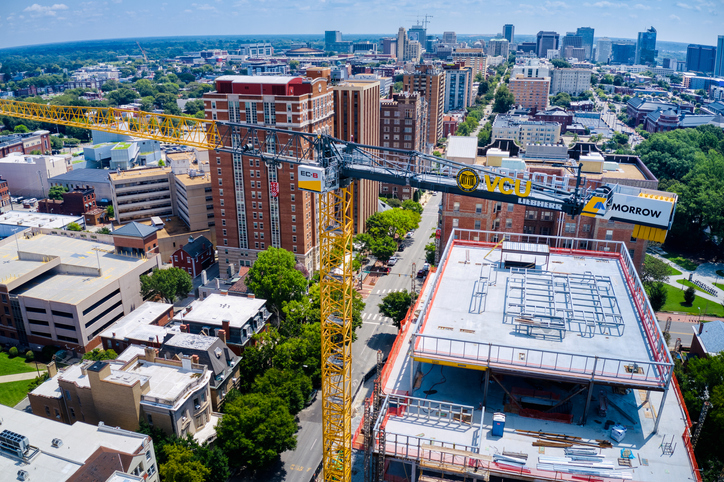Mold Complaints At Virginia HBCU Get Dorm Shut Down For The Entire Academic Year
Source: Sky Noir Photography by Bill Dickinson / Getty
Toxic mold contaminating the dorm rooms of HBCU students seems to be a reoccurring theme over the past several months.
In October Howard University students protested horrible living conditions inside of some dorms on their campus. Using the Twitter and Instagram hashtag, #BlackburnTakeover, organizers encouraged a sit-in at the university’s Blackburn Center until students’ demands were met. Pictures of mold growing from closest, air vents, picture frames, and even clothes flooded social media. Students at Howard at the protest for over a month for school officials to finally take action to solve the issue.
Virginia Commonwealth University is the next school on the list of HBCU’s with mold-infested dorms. The school recently closed the freshman dormitory Johnson Hall for the remainder of the school year after complaints of humidity, moisture, and mold. School officials immediately inspected rooms in the building, installed dehumidifiers, and hired contractors to perform air-quality tests.
The inspection revealed that over 40 rooms within Johnson Hall had an “elevated spore count of mold.”
This prompted school officials to get the dorm shut down and get students in temporary housing as quickly as possible as to not interrupt their studies. More than 400 students were told they had to relocate from the dorm, but university officials have offered residents housing on and off-campus, including apartment and hotel options in the city of Richmond.
Michael Cimis, VCU’s director of environmental health and safety said closing the dorm was a difficult decision, but it had to be done out of an abundance of caution.
“Mold is everywhere. Fungal spores are present in almost every environment and it grows when conditions are right, and that generally involves moisture or humidity,” said Cimis. “But when it does grow uncontrolled, it can become a problem.”
Prolonged mold exposure can cause many different types of health problems including but not limited to stuffy noses, itchy eyes, breathing issues as well as compromised immune systems.
This alarming trend of mold outbreaks in the dorms of freshman HBCU students speaks to a lingering infrastructure problem that won’t go away unchecked. Many of these dorms are almost as old as the schools themselves. Just like many issues that affect the black community, they are usually a microcosm for a broader problem– infrastructure in the U.S. is long overdue for some much-needed rehabilitation.
ALSO SEE:
What HBCUs Can Learn From Howard University’s Student Protests
Howard Student Protest Finally Ends After Reaching Confidential Agreement With School Administration
[ione_media_gallery id=”4237330″ overlay=”true”]

